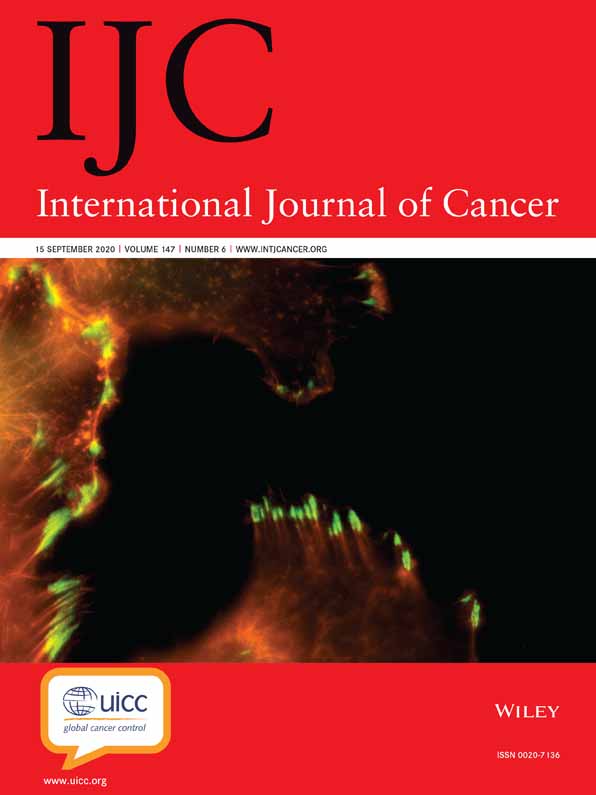Potentially functional genetic variants in PLIN2, SULT2A1 and UGT1A9 genes of the ketone pathway and survival of nonsmall cell lung cancer
Abstract
The ketone metabolism pathway is a principle procedure in physiological homeostasis and induces cancer cells to switch between glycolysis and oxidative phosphorylation for energy production. We conducted a two-phase analysis for associations between genetic variants in the ketone metabolism pathway genes and survival of nonsmall cell lung cancer (NSCLC) by analyzing genotyping data from two published genome-wide association studies (GWASs). In the discovery, we used a genotyping dataset from the Prostate, Lung, Colorectal and Ovarian Cancer Screening Trial in the multivariable Cox proportional hazards regression analysis. We used Bayesian false discovery probability (≤0.80) for multiple testing correction to evaluate associations between 25,819 (2,176 genotyped and 23,643 imputed) single-nucleotide polymorphisms (SNPs) in 162 genes and survival of 1,185 NSCLC patients. Subsequently, we validated the identified significant SNPs with an additional 984 NSCLC patients from the Harvard Lung Cancer Susceptibility GWAS study. Finally, we found that three independent and potentially functional SNPs in three different genes (i.e., PLIN2 rs7867814 G>A, SULT2A1 rs2547235 C>T and UGT1A9 rs2011404 C>T) were independently associated with risk of death from NSCLC, with a combined hazards ratio of 1.22 [95% confidence interval = 1.09–1.36 and p = 0.0003], 0.82 (0.74–0.91 and p = 0.0002) and 1.21 (1.10–1.33 and p = 0.0001), respectively. Additional expression quantitative trait loci analysis found that the survival-associated PLIN2 rs7867814 GA + AA genotypes, but not the genotypes of other two SNPs, were significantly associated with increased mRNA expression levels (p = 0.005). These results indicated that PLIN2 variants may be potential predictors of NSCLC survival through regulating the PLIN2 expression.
Abstract
What's new?
Ketone bodies and medium-chain fatty acids may be used as a tool to induce cancer cells to switch between glycolysis and oxidative phosphorylation in cellular respiration, which, therefore, may have an effect on treatment response and outcomes of cancer patients. In the present study, we investigated the role of genetic variants in ketone-related pathway genes in survival of lung cancer patients and found that three genetic variants located in PLIN2, SULT2A1 and UGT1A9, respectively, were independently associated with survival of patients with non-small cell lung cancer. The survival-associated variant in PLIN2 was also associated with mRNA expression levels in lymphoblastoid cells and thus may serve as a potential biomarker for lung cancer survival.
Conflict of interest
J.M.C. declares the following conflict of interest: he has ongoing research projects funded by Bristol-Myers Squibb, Eli Lilly, Genentech, Spectrum, Adaptimmune, Medpacto, Bayer, AbbVie, Moderna, GlaxoSmithKline, Array, and AstraZeneca; he has been funded for his speeches by Merck; he has served on the Advisory Boards of AstraZeneca, Guardant, Merck, Eli Lilly, Pfizer, and NGM Biopharmaceuticals; his travels have been supported by Merck, AstaZeneca, Pfizer, NGM Bio; and he has served on Board of Director for Lung Cancer Initiative of North Carolina (uncompensated). Other authors declare no conflict of interest.




